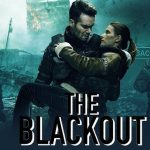The Dark Knight (2008)

“The Dark Knight,” directed by Christopher Nolan, is a groundbreaking superhero film that redefined the genre and is widely regarded as one of the greatest films of all time. Released in 2008, this sequel to “Batman Begins” delves deeper into the psyche of its characters, particularly the iconic Batman, portrayed by Christian Bale, and his arch-nemesis, the Joker, played brilliantly by Heath Ledger.
Set in Gotham City, “The Dark Knight” follows Batman as he faces a new breed of criminal—a chaotic and nihilistic villain who seeks to plunge the city into madness. The Joker’s unpredictable nature and philosophical motivations challenge Batman’s moral compass, forcing him to confront not only the criminal underworld but also the ethical dilemmas of justice and vigilantism.
The film is notable for its stunning cinematography, masterful direction, and a gripping screenplay that weaves together themes of fear, chaos, and sacrifice. Hans Zimmer’s haunting score heightens the tension, making every scene pulse with energy and urgency.
Heath Ledger’s portrayal of the Joker earned him a posthumous Academy Award for Best Supporting Actor, solidifying his performance as a defining moment in cinematic history. The character’s menacing charisma and anarchic philosophy leave a lasting impact, making him one of the most memorable villains in film history.
In addition to Bale and Ledger, the cast includes Aaron Eckhart as Harvey Dent, Maggie Gyllenhaal as Rachel Dawes, and Gary Oldman as Commissioner Gordon, each contributing to the film’s rich tapestry of character development and moral complexity.
“The Dark Knight” is more than just a superhero film; it’s a profound exploration of heroism and the human condition. Its influence extends beyond cinema, inspiring discussions about morality, society, and the nature of evil. With its intense action sequences, intricate plot, and unforgettable performances, “The Dark Knight” remains a timeless classic that resonates with audiences around the world.












